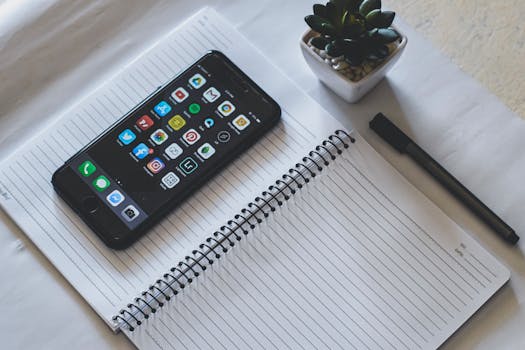What is productivity apps comparison?

What is productivity apps comparison?
In today’s fast-paced world, staying organized and efficient is more important than ever. Productivity apps have become essential tools in helping individuals and teams manage their time, tasks, and projects effectively. With so many options available, understanding the nuances of different productivity apps is crucial. A productivity apps comparison can help you discover which tools align best with your needs, making your work and personal life easier to manage.
Understanding Productivity Apps
Productivity apps are software applications designed to assist users in organizing their tasks, managing time, and improving overall efficiency. Their primary purpose is to streamline various aspects of work and personal life, enabling users to focus on what matters most. Whether you’re juggling multiple projects or trying to keep track of daily tasks, these apps can provide structure.
Types of Productivity Apps
There are various categories of productivity apps, each specialized for different purposes:
- Task Management Apps: These help users organize and prioritize tasks. Examples include Todoist and Microsoft To Do.
- Time Tracking Apps: Useful for freelancers and teams, these apps monitor time spent on different tasks. Tools like Toggl and Clockify are popular choices.
- Project Management Apps: Designed for collaborative work, these apps allow teams to manage projects, assign tasks, and track progress. Examples are Trello and Asana.
- Note-Taking Apps: These apps help users capture ideas, notes, and information efficiently. Notion and Evernote are well-known in this category.
Key Features to Consider
When comparing productivity apps, certain features are essential to keep in mind:
- User Interface: An intuitive and user-friendly design can enhance your experience.
- Integrations: The ability to connect with other tools and platforms can save time and streamline workflows.
- Collaboration Tools: If you work in a team, look for apps that support real-time collaboration.
- Offline Capabilities: This feature allows you to work without an internet connection, ensuring productivity regardless of your situation.
Comparing Popular Productivity Apps
With numerous productivity apps available, it’s helpful to compare some of the most popular options. Here’s an overview of how some top contenders stack up against each other.
Trello vs. Asana
Trello and Asana are both popular project management tools, but they cater to slightly different needs.
- Trello uses a card-based system, making it visually appealing and easy to use. It’s great for tracking tasks through different stages of completion. However, it may lack some advanced features for larger projects.
- Asana, on the other hand, offers a more structured approach, with various views like list, board, and calendar. It’s ideal for teams that need to manage complex projects. However, it can feel overwhelming for new users.
For more insights on the differences, check out PCMag’s comparison of productivity apps.
Notion vs. Evernote
When it comes to note-taking, Notion and Evernote are two leading choices.
- Notion is incredibly versatile, allowing users to create databases, wikis, and notes all in one place. It’s perfect for users who appreciate customization but can be a bit daunting for beginners.
- Evernote has long been a favorite for straightforward note-taking and organization. It offers powerful search capabilities and web clipping features, making it easy to save information from the web. That said, its free version has limitations, which may push users to consider upgrading.
You can explore more about these tools through this Zapier guide on the best productivity apps.
Todoist vs. Microsoft To Do
Both Todoist and Microsoft To Do are effective task management tools, but they have unique strengths.
- Todoist is known for its clean design and powerful task organization features. It allows you to prioritize tasks and set recurring deadlines, which can be useful for managing complex schedules.
- Microsoft To Do, integrated with Office 365, is ideal for users already embedded in the Microsoft ecosystem. It offers a simple interface and good collaboration options, but it may lack some of the advanced features that Todoist provides.
Pros and Cons of Using Productivity Apps
While productivity apps can enhance your productivity, they also come with their set of advantages and challenges.
Benefits of Productivity Apps
- Improved Organization: These apps help you keep track of tasks and deadlines, reducing stress.
- Time Savings: By streamlining processes, productivity apps can save time on repetitive tasks.
- Enhanced Collaboration: Many apps allow for team collaboration, fostering better communication and teamwork.
Challenges and Limitations
- App Overload: With so many tools available, it can be easy to get overwhelmed by choices.
- Dependency: Relying too heavily on apps may lead to a decrease in personal accountability for tasks.
Best Practices for Choosing and Using Productivity Apps
To maximize the benefits of productivity apps, consider these best practices:
Assessing Personal Needs
Before choosing an app, take a step back and evaluate your personal productivity needs. Ask yourself what features are essential. Do you need strong collaboration tools, or is a simple task list enough? Understanding your requirements will help narrow down your options.
Trial and Adaptation
Don’t hesitate to try multiple apps to see what fits best. Most productivity apps offer free trials, which can help you gauge their effectiveness. Adapt your usage based on your experiences to find the most suitable tools.
Conclusion
In the realm of productivity apps, making informed decisions is vital. A productivity apps comparison not only helps you identify the right tools but also enhances your personal and professional efficiency. By exploring various options, assessing your needs, and adapting your approach, you can find the perfect balance that suits your productivity style. Embrace the tools available, and empower yourself to achieve more every day.